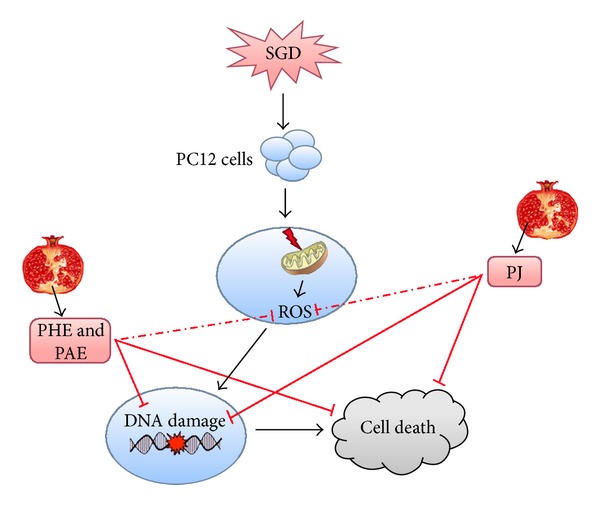Figure 5.

Schematic representation of the protective effects of pomegranate extracts against serum/glucose deprivation- (SGD-) induced PC12 cells injury. SGD may induce mitochondrial dysfunction, calcium overload, overproduction of reactive oxygen species (ROS), and resulting oxidative damage to cellular macromolecules, including membrane lipids, proteins and DNA, neuroinflammation, and induction of cell death. Antioxidant (by scavenging of free radicals or upregulation of paraoxonase 2 expression, leading to inhibition of oxidative damage) [21, 22], anti-inflammatory, neuroprotective, and antiapoptotic properties (by inhibition of cyclooxygenase 2 expression, leading to decreased production of prostaglandins and by decreased transcription of proinflammatory cytokines such as tumor necrosis factor α (TNF-α), interleukin 6 (IL-6), and IL-1β through the modulation of PPAR-γ, NF-κB, AP-1, or MAPK signaling) [6, 9, 14] of pomegranate phytochemicals may block these pathways. PAE: aqueous extract of pomegranate peel and pulp, PHE: hydroalcoholic extract of pomegranate peel and pulp, PJ: pomegranate juice, ↓: activation, ⊥: inhibition.
